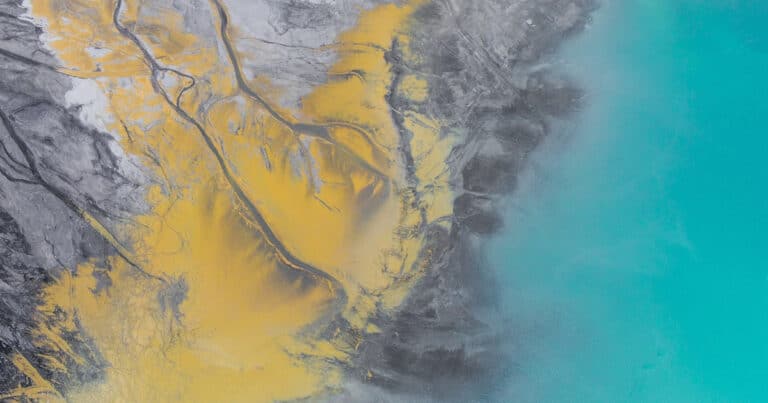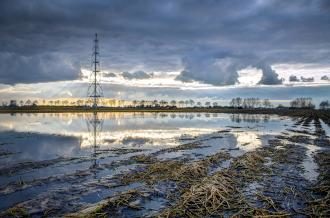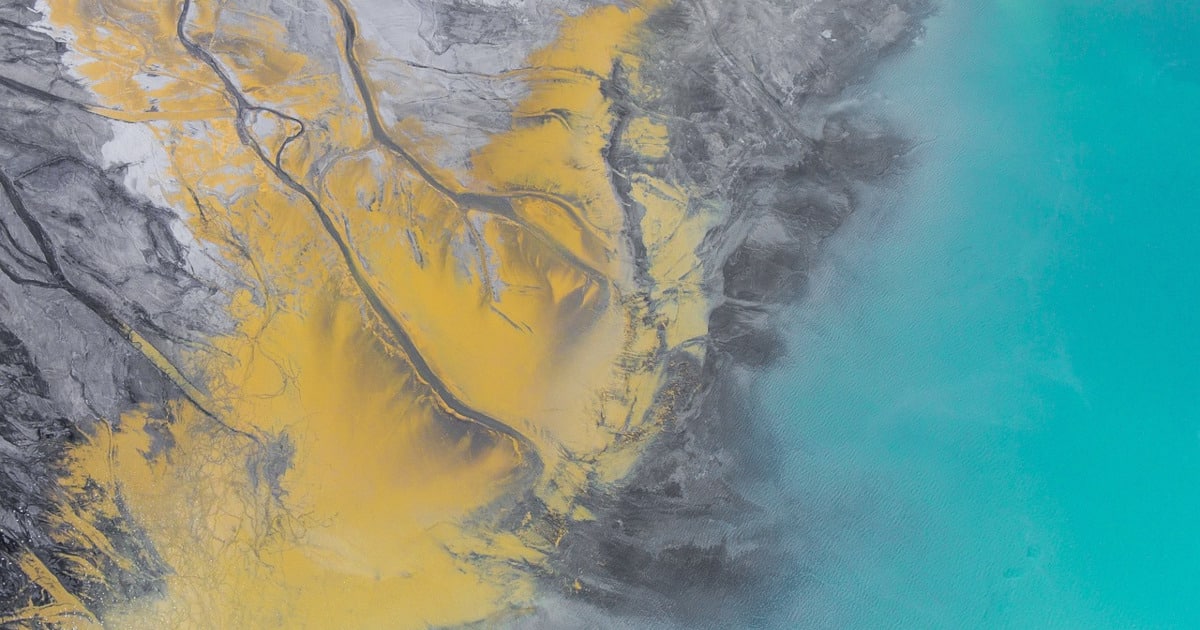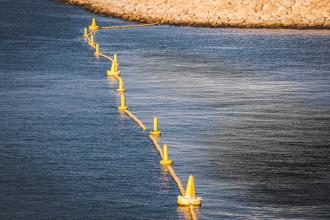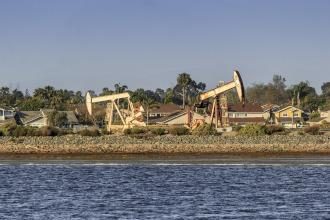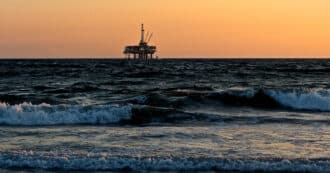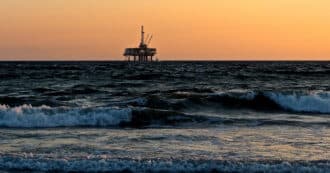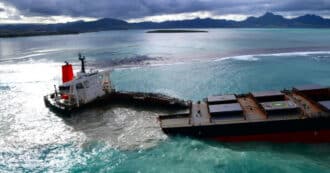By Sydney Cohen – The effects of oil pollution are felt worldwide, and the United States is no exception. From Alaska to Florida, there are many animals that have been affected by oil spills. The Atlantic coast has also seen its fair share of far-reaching impacts from these environmental disasters. Oil spills affect marine life in so many ways, by ingestion or absorption through their skin. It’s important to be aware of how these spills happen and what you can do to help clean up the damage!
Oil pollution is a major problem in the world today. Not only does it destroy our natural resources, but it also has many negative effects on people and animals. This article will go over the main causes of oil spills, how they cause environmental degradation, and what we can do to prevent them from happening again.
What Is Crude Oil?
Crude oil is a natural resource that we all need to use. However, crude oil can be very toxic and dangerous if it spills into the environment or if we release too much of it into the atmosphere.
Crude oil is a thick black liquid. It has been used for many purposes in the past and it will be used in the future as well. However, crude oil can also be very harmful to our environment if not properly handled or disposed of.
Crude Oil to Refined Oil
Crude oil is located under the water or in underwater reservoirs where drops of oil are deposited in holes or small pores in rocks. After drilling and pumping, the crude oil is transported by pipelines, ships, trucks, or trains to the refineries and processing plants. There it is refined so that it can be incorporated into different petroleum products including gasoline and other fuels, in addition to other products including asphalt, plastics, soaps, and paints.
Oil pollution resulting from the leakage of crude oil into the environment is one of the most serious environmental problems in this world. The crude oil found in the ground, crude oil that has been spilled by an oil tanker, or crude oil that is refined into gasoline and other petroleum products can contaminate water supplies, kill plants and animals, destroy natural habitats and cause respiratory problems for humans. Oil spills are also a major problem because they can severely damage coastal areas like wetlands, beaches, and estuaries where many people vacation during the summer months.
What Is An Oil Spill?
The term is used mostly to describe a maritime oil spill in which a large amount of oil is pumped or spilled into the ocean or coastal waters.
Oil spills penetrate into the plumage of birds and the skin of mammals. This reduces their isolating effects and makes them more vulnerable to temperature fluctuations. Cleanup and recovery from an oil spill is difficult and is dependent on many factors such as the type of oil spilled and the temperature of the water which affects evaporation and biodegradation.
Oil spills can harm sea creatures and ruin beaches, in addition to making certain seafood unsafe to consume. Not only does this affect human seafood consumption, but it harms marine life food chains as well.
It takes science and research to clean up sea surface water, the ocean floor, and beach areas affected by oil spills. There is also much science involved in efforts to reduce toxicity.
Oil is an ancient fossil fuel used by humans to warm up homes, to create electricity and to power our economy. But if oil is spilled directly into the ocean it can create huge devastation.
Oil Spills In The USA
The oil industry is a booming business in the United States. The oil spills that occur in this country are not always caused by oil rigs, but rather by oil tankers and trucks that have been involved in accidents. When an oil spill occurs, it can lead to many serious environmental problems.
When oil spills into the ocean, it is a disaster for both marine life and people. The oil can kill animals in many ways, from suffocation to starvation to poisoning by the oil which they mistake for food. Oil also affects birds who feed on fish or smaller animals covered in oil. In addition, oil particles can be inhaled by these animals and humans alike, causing severe health problems such as lung cancer.
Oil spills are devastating because of the impact they have on our environment and human lives.
What Does The NOAA Do After an Oil Spill?
National Oceanic and Atmospheric Administration (NOAA) and Environmental Protection Agency (EPA) professionals assess what happened and assess the effects before designing the restoration work needed to help the oceans recover. Restoration and cleaning efforts have different processes.
Besides constructing new swampland or protecting animals’ habitats, these initiatives are also necessary to protect the environments they already contain.
The group responsible for the spill can also be held accountable by financially funding the restoration of natural spaces affected by the oil spill such as parks, boat docks, and fishing lines. Restoration projects slow the time it takes for some species and different habitats to regenerate, NOAA experts say. This is not the same as oil spill clean-ups, which are necessary to restore habitats and therefore take place prior to restoration efforts.
Historic Oil Spills
Oil spills have been a historic problem for decades. These historic oil spills are still being dealt with today, and they will be tomorrow as well. It is important to know the history of this issue so that we can make an educated decision about how to deal with them now and in the future.
Many historic oil spills have occurred on the ocean, polluting it with decades of spilled oil. These spills are devastating for marine life that live in the area and can destroy their habitats for years to come. One example is the historic Exxon Valdez spill which took place in 1989. This historic spill released more than 10 million gallons of crude oil into Alaska’s Prince William Sound, making it one of the worst environmental disasters in US history.
The Ixtoc 1 Oil Spill (1979)
Between June 1979 and March 1980, Mexico’s Ixtoc 1 incident sent 140 million gallons of crude oil into the Bay of Campeche D’Estrada. The spill started from an explosion at an oil pipeline station on the platform. The explosion was created when drilling mud did not circulate and resulted in the building up of oil and gas in the pipe. Due to the explosion, some of that oil is now washed up along beaches between the western Yucatan Peninsula and southern Texas.
The Deepwater Horizon Oil Spill (2010)
The Deepwater Horizon oil spill was an environmental disaster that occurred in the Gulf of Mexico. The spill occurred on April 20, 2010, when the wellhead ruptured and collapsed under high pressure, releasing 4.9 million barrels of crude oil into the deep ocean. This is one of America’s worst environmental disasters to date.
It is considered one of the worst environmental disasters in recent times, with implications that are still being felt today. Eleven people died when the Deepwater Horizon Wellhead exploded. The explosion caused an estimated 4.9 million barrels of crude oil to leak into the Gulf of Mexico. The Deepwater Horizon Oil Spill was officially declared over in September 2012, almost two years later, which speaks volumes about the intensive clean-up measures taken in order to clean up oil that is spilled miles offshore.
Paying for Oil Spill Cleanups and Restoration
The Oil Pollution Act of 1990 established that anyone responsible for oil spills is accountable and is obliged to pay for cleanup and repairs. Over the past ten years, NOAA has helped recover over $9 billion from the parties who were responsible for the spill. Federal, state, and tribal agencies jointly oversee the oil spill response plan in all areas of Natural Resource Damage Assessment (NRDA), which is the process of assessing the impacts of a spill and reaching a settlement to support restoration projects.
Oil pollution resulting from oil spills has disastrous environmental effects. While many countries are taking precautions to prevent future spills, it’s important that we all do our part too by not littering or dumping hazardous materials into waterways where they could leak out into coastal waters.
Religion and Oil Pollution
The Church Times recently wrote about how in preparation for COP-26, “72 faith-based institutions, including 37 from the UK, have announced their disinvestment from fossil fuels… The move is the largest-ever joint disinvestment announcement by religious organizations, and represents more than $4.2 billion in financial assets.” By disinvesting from fossil fuels, faith based institutions are able to stand up against oil pollution by weakening the fossil fuel industry.
Sarah Jawaid described in a Huffington Post Blog, her perspective on the 2011 BP Oil spill:
Being Muslim, environmental stewardship is an instrumental expression of my faith. God bestowed on mankind a covenant to protect the Earth in the role of vicegerent… Our environment reflects ourselves. The clutter of our bedrooms, the disarray of our community spaces and in this case the destruction of a habitat by oil and gas due to human intervention; all reveal the lack of order within us.”
Oil Pollution As a Reflection of Our Inner Pollution
An important religious perspective, that Jawaid is advocating for, is that the oil pollution in the world is a reflection of pollution in ourselves.
The more we focus inwards to purify ourselves internally, the better equipped we will be to clean up the world, and vice versa.
* Featured image source

